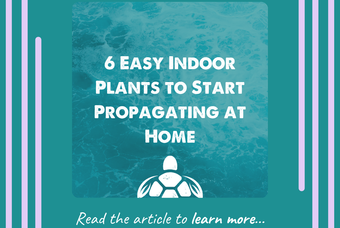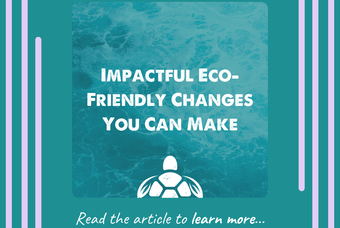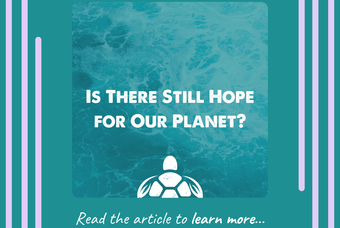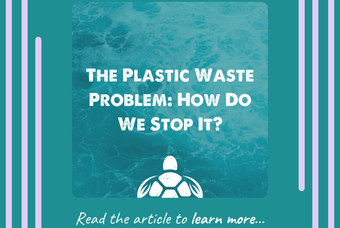The News-Hub/ Articles
Back to Articles
Recommended Articles
Will the Recycling Industry Welcome Blockchain Technology?
With the digital revolution well and truly upon us, established industries are under increasing pressure to adapt. Recycling is no exception. In fact, it is distinctly inert in this respect, and the consequences distinctly detrimental to the future of our planet. The lack of transparency and monetary incentive in the recycling process has engendered a collective sloppiness. Blockchain offers a solution to both of these things, and by extension, a glimmer of hope in our efforts to combat plastic pollution.
What is Blockchain Technology?
Blockchain is a secure, decentralised digital ledger – a database that allows all parties to securely share data without intermediaries. Data transactions are recorded, validated by a network of users, and added to a transparent, immutable chain of information groups (blocks). The technology has given rise to cryptocurrencies, most notably Bitcoin, and Neobanks like Monzo and Revolut.
Why Does the Recycling Industry Need Blockchain?
The horrors of plastic waste are well documented. If disposed of in landfill, indeed anywhere except for recycling centres, plastic is essentially left to decompose over 500 years. Yet, out of 300 million tonnes of plastic produced each year, only 9% is recycled.
The recycling industry has, for so long, relied exclusively on the inept waste separation habits of consumers and municipalities. Clear, readily-available information about what can and can’t be recycled is scarce. Subsequently, for the majority of people, there is little motivation to get it right. The recycling industry requires systemic change.
How Can Blockchain Technology Be Used in Recycling?
There are multiple ways that blockchain can reform the recycling process. As previously mentioned, it can be deployed in an attempt to achieve greater transparency and incentive for recyclers.
The way to provide transparency is through waste traceability, accessible to all those involved at each stage of circulation. This creates greater trust and accountability between stakeholders; it establishes irrefutable proof that, for example, a piece of glass went into the system and actually became a new bottle.
Using a combination of IoT (Internet of Things) sensors and QR (Quick Response) codes, we would be able to track individual waste packages at every stage of the supply chain, from initial manufacturing to recycling. These results would be permanently added to the blockchain and available to users.
Recycling platform, RecycleGo, recently partnered with enterprise technology firm, DeepDive, to produce one of these tracking platforms. CEO, Stan Chen, explains that “the more visibility you have in any kind of supply chain, the more you’re able to engage in enterprise resource planning… which has a direct impact on protecting your margins and ultimately your value creation as a whole.”
In fact, it is this value creation – turning waste into an asset – that may hold the key to systemic change in current recycling operations. A report, published in 2019 by INSEAD, affirms that “to get rid of waste, one must either stop producing waste or stop considering it waste”.
Blockchain facilitates secure, private, peer-to-peer transactions between anyone on the network. It moves onus away from waste management institutions, simultaneously unlocking the economic value in plastic waste, which is estimated at $7 trillion. For example, consumers could scan a QR code on a product, generating a crypto credit and confirmation of ownership. They would then receive this credit in exchange for their waste, integrating it into the crypto-economy.
RecycleGo's Model for Recording Recycling Activity on the Blockchain
Examples of Blockchain Technology in Recycling
As a number of new applications and platforms arise, it appears the recycling industry is beginning to realise the potential of blockchain technology. Here are just a few examples:
1. Plastic Bank:
Founded in 2013, Plastic Bank has pioneered efforts to incentivise communities. Stationed in developing countries – namely Haiti, Peru, Colombia and the Philippines – the organisation encourages people to deliver plastic to recycling centres in exchange for blockchain-secured digital tokens. The tokens can be used to purchase food or phone-charging units in any store using the Plastic Bank app. The plastic is then bought by companies and recycled into new consumer products, providing both credit and a platform for users to monitor the outcome of their investment.
2. KleanLoop:
KleanLoop is an app that uses transparent data to achieve a circular economy. It provides a secure marketplace, real-time industry data, smart contracts, and quick, efficient payment (‘Klean Coin’). The seller takes a picture of their waste; the app then calculates a value and contacts a nearby recycler interested in buying it; the recycler sends a driver to collect the waste and confirm its value; impending payments are validated by an independent party on the blockchain; then, once validated, the driver, seller, and validator are each distributed Klean Coin for their efforts.
3. Empower:
Norwegian based start-up, Empower, uses blockchain tokens to foster donation-based recycling. With every euro donated by an organisation, Empower commits to clean up the same amount of plastic waste (by weight).
Will Blockchain Technology Transform the Recycling Industry?
The industry has reached a crossroads; it will either commit to a full-scale digital transformation or continue to administer a neglectful recycling process. The aforementioned examples are hopefully just the beginning of a recycling revolution.
There is certainly consensus amongst government authorities and large corporations that sustainability must improve. France has pledged a 100% effectiveness in their circular economy for plastics by 2025. Furthering this, the Ellen MacArthur Foundation, through its New Plastics Economy Global Commitment initiative, has mobilised more than 350 global organisations behind a common vision for a circular economy for plastics.
Blockchain is also a lucrative proposition. Prismm Environmental, a UK-based waste management consultancy, confessed that “we could save thousands of pounds if all of our payments and revenue was in bitcoin rather than traditional payments, such as UK sterling or US dollar”. Recycling companies, like any other business, need to generate revenue. If blockchain can leverage the untapped economic potential in plastic waste, it could become an important revenue stream.
With 480 billion plastic bottles produced each year, cashing in on plastic waste would present a genuine multi-billion dollar venture. It wouldn’t just incentivise sustainability, it could also provide critical aid for developing countries.
The greater obstacle to long term success is that these technologies must run concurrently to a cultural “paradigm shift”. A shift which necessitates major behavioural changes at a grassroots level and, as INSEAD executive, Michael Peshkam, outlines, “a change champion with global reach and clout to really move things forward”.
As things stand, there is still hesitation in the recycling industry towards digital transformation. It is an expensive operation that requires external financial and technical support. It is no surprise then that, according to Couchbase, 81% of digital transformation projects fail in the first 12 months.
If the recycling industry has any chance of persisting with blockchain technology, all actors in the chain must mobilise in support. Major corporations must demand greater sustainability, committing to a circular economy. Recycling companies must seize upon a growing culture of sustainability, recognising the financial benefits of blockchain technology. The blockchain community must support the digital transformation, providing crucial software, talent and expertise. A change champion must continue to rally and force the issue into public consciousness. And, last but not least, the public themselves must engage in new digital recycling platforms.
Empty content. Please select category to preview











0 comments. Write a comment